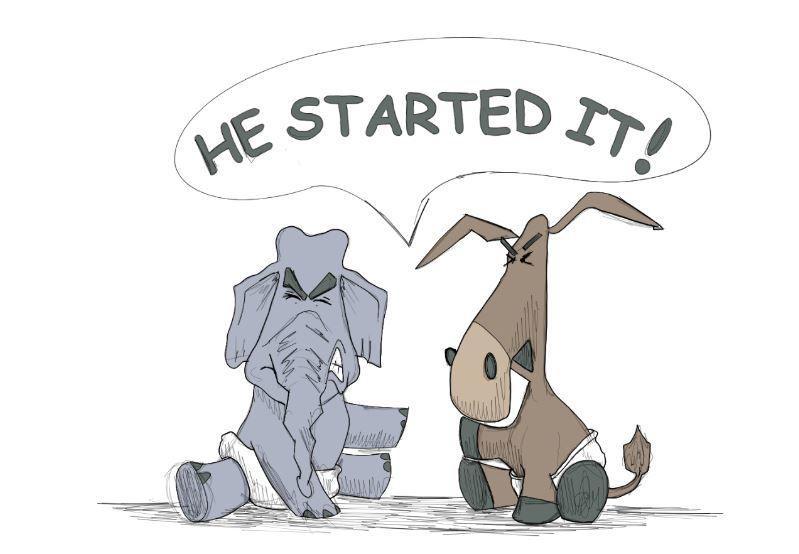Anyone growing up in a conservative home knows the most universal fundamental truth: liberals are hypocrites. Between your angry father and the pervasive presence of Fox News, it may have seemed right at the time.
A walk through a sophisticated coffee shop in uptown New Orleans will tell you what’s really up: conservatives, in addition to being morons, are hypocrites.
Both sides are right to call out the other for hypocrisy because both sides are equally guilty of not living up to their promises.
Former President George Washington was selected as a hero to enter office at the dawn of the country. In his time and especially near the end of his presidency, Washington spoke out against the idea of a two-party system.
According to Washington, a bipartisan government system is “despotic.” He argued bipartisanship would lead to a perpetual cycle of pettiness and revenge.
Immediately after, politicians split into two factions: the Federalists and the Anti-Federalists. Through the years, parties have risen and fallen. Of the major parties, the Republican and Democratic parties have persisted the longest.
We still face the issue today. Although 45 percent of Americans identify as independents, being independent isn’t really an option.
When it comes to elections, independents are out of luck. Many states have a closed primary, essentially denying those who don’t register with one of the two major parties their right to choose which candidates they would be voting for later.
Particularly savvy, or perhaps vengeful, independents may choose to vote for third party candidates, such as those from the Libertarian or Green parties.
Congratulations for beating the system. According to the Federal Election Commission, third parties who receive 5 percent of popular votes receive federal funding for upcoming elections.
Voting third party helps ensure smaller, more specific issues are addressed. However, the chance of a third-party candidate reaching the presidency is minimal.
To make a difference in the White House, you have little choice but to choose Democrat or Republican. What happens if neither of the candidates is a good choice?
The 2016 election provided an outstanding answer for this predicament. Former presidential candidate Hillary Clinton is the only person in popular politics more hated than Donald Trump.
Both candidates had firm supporters who believed in their ideals. However, the vast majority of voters opted for the lesser of two evils. Trump is a madman and Clinton is corrupt, most people on both sides agreed.
When the election came around, most people deemed Trump to be the lesser of the two evils.
During the election, Trump championed rights for all people, saying he would protect LGBTQ people from radical, foreign terrors. In a way, his ban on transgender people in the military does fulfill his promise of protecting them.
Clinton isn’t free from scandal, either. Her personal policy is to say whatever people want to hear in the moment.
Neither of the candidates were trustworthy, but voters had to choose between one of them.
This destructive cycle sullies the voting process. It has become the broken mess Washington foresaw 200 years ago.
As it is, the Republican and Democrat parties have too much power. They’re too widespread to appeal to larger groups and lose a lot of soul in the process.
Kyle Richoux is a 20-year-old sociology sophomore from LaPlace, Louisiana.





